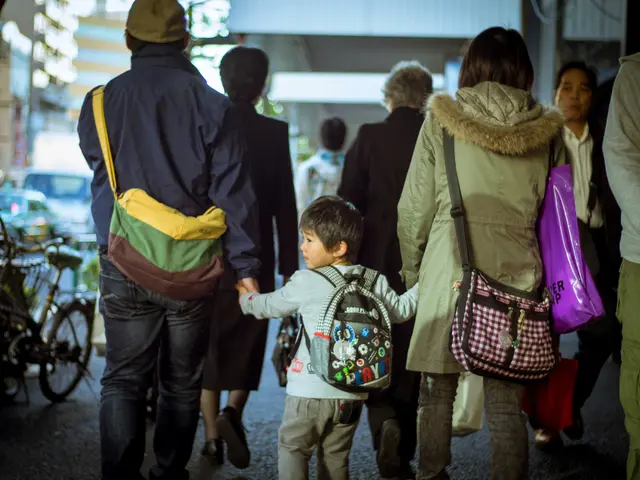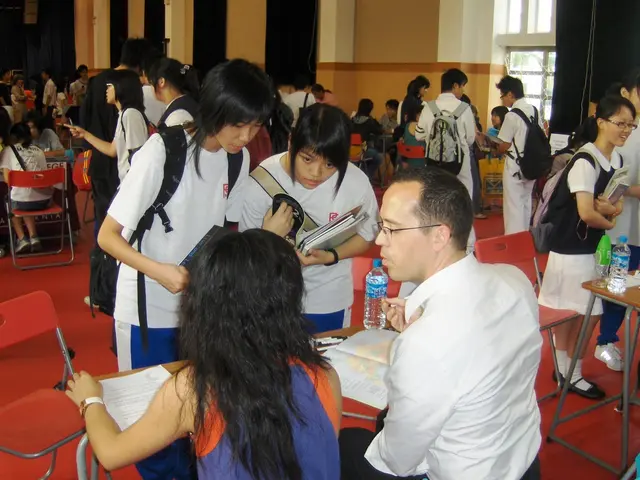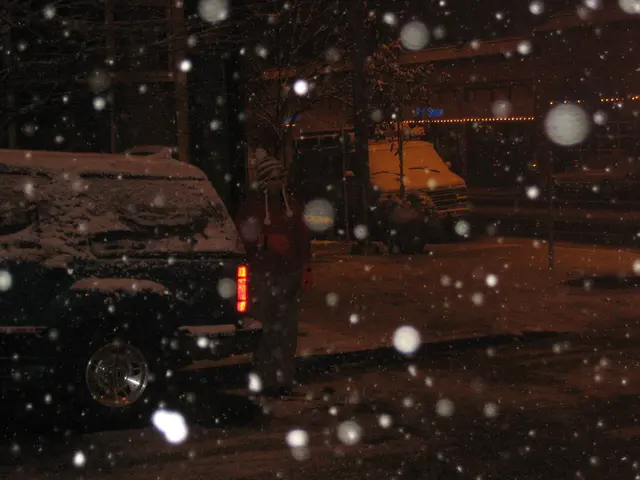Education System in Turmoil: Influence of Politics on Schooling Structures
Schools and Politics: A Long, Turbulent History
Education in the good ol' US of A has always been more than just academics - it's a battleground for ideologies and a reflection of our deep-rooted societal divisions. From its humble beginnings as an instrument for indoctrination to current heated debates over race, gender, and inclusivity, schools have mirrored (and sometimes amplified) our nation's conflicts.
A Historical Lesson: The Origin of Political Influence in American Schools
The foundation of public education in America was far from neutral. In the 19th century, schools transformed into tools for promoting Protestant moral values and fostering a unified national identity. This agenda marginalized immigrant and minority populations, causing tensions that would last for generations.
Legal skirmishes such as the 1925 Pierce v. Society of Sisters case further defined the boundary between church and state, while the Americanization era intensified in the early 20th century, erasing the diverse languages and customs of immigrants. English-only policies and the Pledge of Allegiance were instituted, leading to cultural erasure within the classroom.
Race, Equality, and the Journey towards Change
The Civil Rights Movement shook the core of America, placing education at the heart of the struggle for racial justice. The 1954 Brown v. Board of Education case outlawed legally segregated schools. However, resistance was fierce, causing white families to flee integrated communities in waves of "white flight."
Desegregation was further hindered by the creation of private "segregation academies" and the passage of laws designed to maintain de facto segregation.
The Gender Battle: Fighting for Equality
The fight for gender equality has been a long, uphill struggle in American education. Women and girls faced discrimination by being shut out of education altogether, dealing with sexist dress codes, and limited opportunities in certain fields of study.
The 1972 passage of Title IX, which required equal opportunities for women in both academics and athletics, was a significant step towards gender equity. However, resistance and traditional gender roles persist, limiting the progress of equal education for all.
Recent years have seen renewed conflicts over issues such as comprehensive sex education, access to reproductive health resources, and the rights of transgender students. Policies targeting transgender athletes and limiting classroom discussions of gender identity exemplify the ongoing struggle for gender equality.
A New Wave of Confrontation
Political tensions surrounding education have escalated, particularly in relation to the curriculum and inclusion of marginalized groups. Conservative groups have launched efforts to restrict or ban discussions about race, gender, and sexuality in school, often under the pretense of protecting children from indoctrination.
The COVID-19 pandemic brought public health into the school politics arena, fueling debates over masks, vaccination requirements, and remote learning. Controversial legislation such as Florida's "Don't Say Gay" law and Missouri's HB952 have sought to silence critical conversations about identity, history, and social inequities. These actions directly challenge intellectual freedom and the representation of diverse perspectives in schools.
Book bans have widened the gap between proponents of free thought and those advocating for ideological control, as books addressing race, gender, and sexuality are purposely targeted and removed from schools.
Diversity, Equity, and Inclusion: A Controversial Topic
The focus on Diversity, Equity, and Inclusion (DEI) policies in schools has become a divisive issue in contemporary society. While proponents argue that these policies are essential for fostering a welcoming and inclusive environment, opponents often claim these initiatives to be an attempt at "reverse discrimination" or "indoctrination" of students.
The stakes are high, as the politicization of public schools threatens not only academic freedom and critical inquiry but the very essence of American democracy. Public education is intended as a incubator for democratic values, preparing students to engage in civil discourse and participate fully in civic life.
However, when they are transformed into battlegrounds for partisan agendas, the fundamental mission of public schools is compromised. The consequences extend far beyond the classroom, as students risk growing up without the ability to navigate differing viewpoints and engage with the complexity of society. If we neglect to nurture critical thinkers with empathy and democratic engagement, we risk raising a generation ill-equipped to confront the challenges of the world.
** academic freedom* Americanization* book bans* censorship* civil rights* curriculum battles* Democracy* education* gender* ideological control* political influence* public education* race* school segregation* title IX**
[1] Academic freedom, McCarthyism, and the Cold War](https://web.archive.org/web/20211019094132/https://www.academyofamericanpoets.org/resources/learning/resources-for-educators/professional-development/academic-freedom-mccarthyism-and-the-cold-war/)
[2] Public schools as incubators of democracy](https://www.oregonstate.edu/instruct/twc/history-of-american-education.html#democracy)
[3] The Black Panther Party's evolving approach to education](https://www.thoughtco.com/the-black-panther-party-and-education-4084870)
[4] The ongoing political battle for control over curricula](https://www.nbcnews.com/think/opinion/your-child-s-school-used-political-pawn-ncna1257669)
[5] The role of the National Education Association and the Elementary and Secondary Education Act](https://www.npr.org/sections/education/2018/05/25/615036345/ask-aboathiv:education-the-national-education-association-and-the-esea)
- Despite the introduction of academic freedom post-McCarthyism, the cold war era still posed challenges for educators, as they navigated the fine line between fostering intellectual inquiry and adhering to political expectations.
- Public schools, as incubators of democracy, bear the responsibility of encouraging critical thinking and civil discourse among students, rather than serving as grounds for ideological control.
- The ongoing political battle for control over curricula has become increasingly apparent, with certain groups advocating for book bans and censorship in an attempt to limit controversial publications addressing topics such as race, gender, and sexuality.
- Efforts to suppress diverse perspectives in schools directly threaten the very essence of American democracy, as students may grow up without the skills necessary to navigate differing viewpoints and engage in meaningful civic participation.








